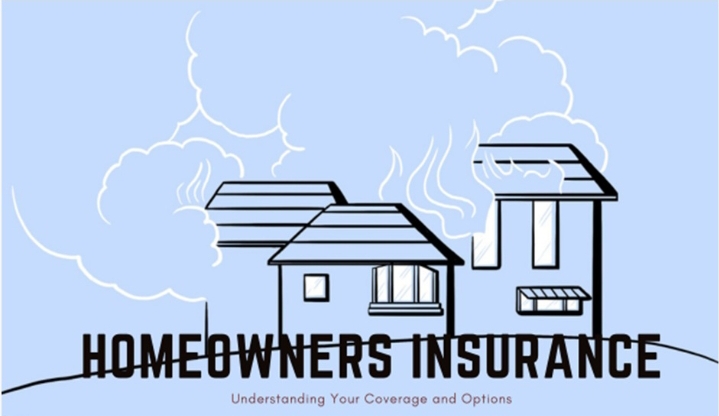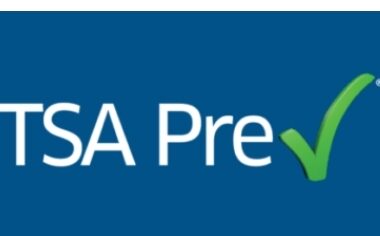Homeowners Insurance: Understanding Your Coverage and Options
As a homeowner, you have invested a lot of money, time, and effort in your property. You want to protect it from any potential damages or loss. Homeowners insurance is a type of insurance policy that can help you do just that.
In this article, we will explore what homeowners insurance is, what it covers, and the different options you have when it comes to purchasing coverage.
What is Homeowners Insurance?
Homeowners insurance is an insurance policy that safeguards your home and personal possessions against financial losses due to damages or loss incurred from covered risks. Perils are events that could cause damage to your home, such as fire, theft, and natural disasters like hurricanes or earthquakes.
Homeowners insurance typically includes two main types of coverage:
Property Coverage: This type of coverage protects your home and other structures on your property, such as a garage or shed, from damage caused by covered perils. It also covers personal belongings, such as furniture, appliances, and clothing, that are lost or damaged due to covered perils.
Liability Coverage: This type of coverage provides financial protection if you or a member of your household is found responsible for causing injury or property damage to someone else. If you are sued, liability coverage can also assist in covering legal expenses.
What Does Homeowners Insurance Cover?
Homeowners insurance typically covers the following perils:
- Fire and smoke damage
- Wind and hail damage
- Lightning strikes
- Theft and vandalism
- Water damage from burst pipes or appliances
- Damage caused by vehicles or aircraft
- Falling objects
- Damage caused by civil disturbances, such as riots or protests
- Damage caused by volcanic eruptions
It’s important to note that homeowners insurance does not typically cover damages caused by floods or earthquakes. If you live in an area that is prone to these types of natural disasters, you may need to purchase additional coverage to protect your home and personal belongings.
READ ALSO: How to Choose the Best Plan for You and Your Family
What Are Your Homeowners Insurance Options?
When it comes to purchasing homeowners insurance, you have a few different options to choose from. The three most common options are:
Actual Cash Value (ACV): This type of coverage pays out the actual cash value of your damaged or lost property, minus any depreciation. This means that if your 10-year-old TV is destroyed in a covered peril, you will receive the value of a 10-year-old TV, not the cost to replace it with a brand new one.
Replacement Cost Value (RCV): This type of coverage pays out the cost to replace your damaged or lost property with a similar item of equal value. This means that if your 10-year-old TV is destroyed in a covered peril, you will receive the cost to replace it with a brand new TV of similar make and model.
Guaranteed Replacement Cost (GRC): Guaranteed Replacement Cost (GRC) coverage ensures that you receive the entire cost to rebuild or replace your home and personal belongings, even if it exceeds the policy limit. This type of coverage is the most comprehensive and can provide you with peace of mind knowing that you are fully protected in case of a catastrophic loss.
In addition to choosing between ACV, RCV, and GRC coverage, you can also choose to add additional coverage options to your homeowners insurance policy, such as:
Flood Insurance: This type of coverage provides financial protection in case of damages caused by floods. Flood insurance is typically not included in standard homeowners insurance policies and must be purchased separately.
Earthquake Insurance: This type of coverage provides financial protection in case of damages caused by earthquakes. Earthquake insurance is typically not included in standard homeowners insurance policies and must be purchased separately.
Personal Property Endorsements: This type of coverage provides additional protection for high-value items, such as jewelry, antiques, and art. These items may not be fully covered under your standard homeowners insurance policy, so a personal property endorsement can provide additional coverage.
Umbrella Insurance: This type of coverage provides additional liability protection beyond the limits of your homeowners insurance policy. Umbrella insurance can be a good option if you have significant assets that you want to protect.
How Much Homeowners Insurance Do You Need?
The amount of homeowners insurance you need depends on a variety of factors, including the value of your home, the cost to rebuild, and the value of your personal belongings. It’s important to have enough coverage to fully protect your assets, but you also don’t want to overpay for coverage you don’t need.
To determine how much homeowners insurance you need, you should consider the following:
The value of your home: You should insure your home for the full value of what it would cost to rebuild it in case of a total loss.
Your personal belongings: You should take an inventory of all your personal belongings and determine their value. This will help you determine how much personal property coverage you need.
Liability coverage: You should consider your assets and the likelihood of being sued. If you have significant assets, you may want to consider purchasing an umbrella policy for additional liability protection.
Additional coverage: You should consider any additional coverage options you may need, such as flood insurance or earthquake insurance.
Once you have determined how much homeowners insurance you need, you can begin shopping for coverage.
How to Shop for Homeowners Insurance
When shopping for homeowners insurance, it’s important to do your research and compare quotes from multiple insurance companies. Here are some steps you can take to find the right coverage at the right price:
Determine your coverage needs: Before you start shopping, determine how much coverage you need and what types of coverage options you want.
Shop around: Get quotes from multiple insurance companies to compare rates and coverage options.
Read the fine print: Be sure to read the policy details carefully to understand what is covered and what is not covered.
Consider customer service: Look for insurance companies with good customer service and a reputation for handling claims quickly and fairly.
Bundle your policies: You may be able to save money by bundling your homeowners insurance with other types of insurance, such as auto insurance.
Conclusion
Homeowners insurance is an important investment for any homeowner. It can provide financial protection for your home and personal belongings in case of damage or loss caused by covered perils. When shopping for homeowners insurance, it’s important to understand your coverage options and determine how much coverage you need. By doing your research and comparing quotes from multiple insurance companies, you can find the right coverage at the right price.




